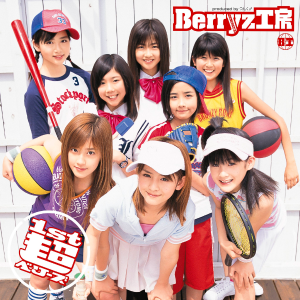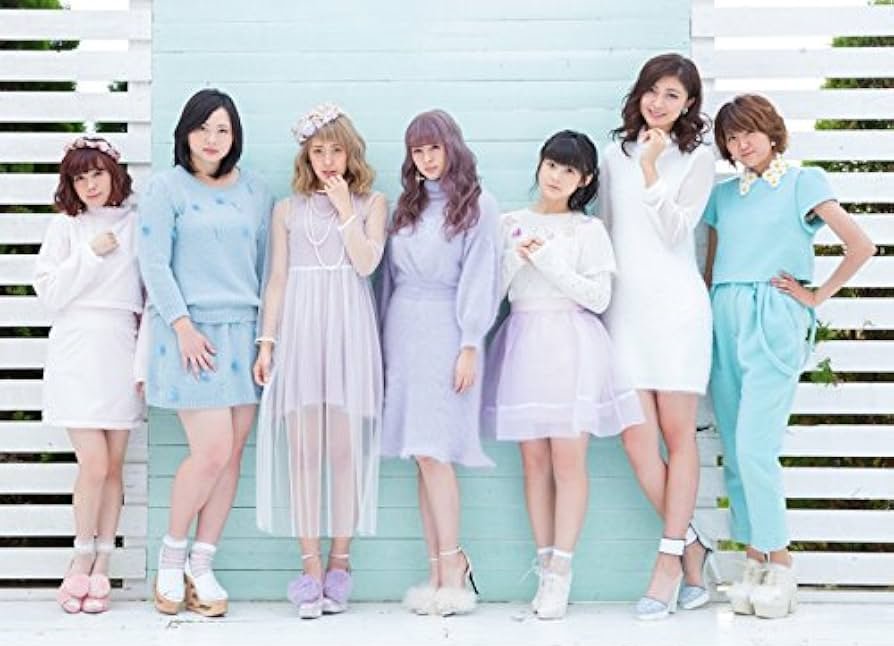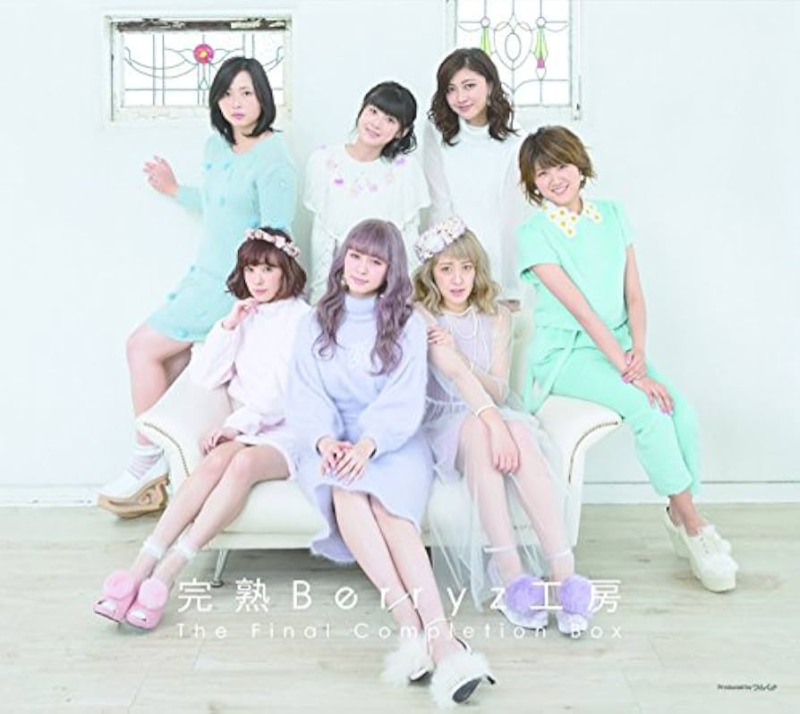“People Usually Aren’t Idols for 10 Years, Are They?”
Berryz Koubou’s 35th single, released 10 years after their debut seemed to have the optimistic message: Berryz were the idols who would be going against the grain and be around for a very long time. It was shortly after this single was released that the group announced they would be on put on “Indefinite Hiatus”.
Similar to Melon Kinenbi’s Melon’s Not Dead album (which less than a week after they also announced their hiatus), the singe jinxed the group’s future – a fate not unpredictable, as people aren’t usually idols for 10 years.

Kanjuku Berryz Kobo The Final Completion Box charts, what has been, an extremely impressive career for Berryz Kobo. There are three different versions of the album, but it was the regular edition, 6 CDs containing all the groups A and B-sides as well as rare tracks, was what hooked me.
Berryz began their life as selected members of “Hello! Project Kids” who would perform in a revolving group. Starting with ‘Anata Nashi de wa Ikite Yukenai’, Berryz became an idol group known for their energetic singles. Tsunku (Hello! Project’s producer and composer and lyricist of almost all Berryz’ singles) had given the group some of his best songs to work with during their “Break Out”. I’m a big fan of Berryz’ second single, ‘Piriri to Yukou!’ and their defining, moody dance number ‘Special Generation’. They established themselves as an energetic idol group, singing quirky upbeat songs.
Despite the group being founded as a temporary or rotational group, with other members of Hello! Project kids (who eventually became C-ute) meant to be rotated into Berryz, the group remained static and maintained stable sales, and even when member Maiha Ishimura left in 2005, this didn’t phase them. Berryz had established strong lead singers in Momoko Tsugnaga, Miyabi Natsuyaki, Yurina Kumai and Risako Sugaya.
Notably, 2007/8 saw a push to Berryz gaining more recognition as a mainstream idol group. ‘Tsukiatteru no ni Kataomoi’ in particular is quite nostalgic for me, perhaps due to its performance at the 2007 Kohaku Uta Gassen. The upbeat tempo of a song about unrequited love was almost amusing. ‘Dschinghis Khan’ the proceeding single was also a hit – bizarrely a cover of a 1970s German Eurovision entry.
Arguably, 2009’s ‘Dakishimete, Dakishimete’ started the second stage in Berryz career. Their following 5 singles would go on to serve as ending themes to Inazuma Eleven, containing up-tempo, energetic numbers. ‘Ryusei Boy’ in particular contains a 70s dance feel, thanks to being arranged by DANCE*MAN.
Although by no means the least popular Hello! Project group, where sister groups C-ute and Morning Musume had fund their niche, Berryz had spent the latter half of their career, as many groups do, unable to find the right ground between early-teen idols and relevant 20-year-olds. After their Inazuma 11 stint, Berryz seemed to lose their way, and their catchy, energetic songs took an unsure path. As the members matured, the energetic youthful songs seemed to become irrelevant, and attempts to sound mature and look mature… just didn’t fit (‘Aa, Yo ga Akeru’).
All was not lost for Berryz, and as time went on, a series of eccentric singles emerged. ‘WANT’ is particularly energetic while keeping a mature edge, and ‘cha cha SING’, a cover of a Thai hit, had a nostalgia of a matured ‘Dschinghis Khan’.

Berryz final singles propelled the group into their own again. ‘Golden Chinatown’, ‘1oku 3zenman Sou Diet Oukoku’ (general Diet Kingdom of 130 million) and ‘Fuutsu, Idol 10nen Yatterannai Desho!?’ Are notable examples of an individual and unpredictable sound.
B-sides are an added bonus, however, B-sides are B-sides for a reason. Although a few stick out (‘Darling I love you’ and ‘Sono Subete no Ai ni’ for example), the rest fall into the “Hello! Project generic B-side category” which are incomparable to their A-side counterparts.
The last CD of the box includes rare covers and solo tracks which were featured on singles. There are some true Gems on here (‘Chou Happy Song‘ with Cute, the “Spark” version of ‘Otekebi Boy’ and ‘Dschinghis Khan’ remixes) and some than underwhelm (‘Get up rapper’ cover).
To sum up, Berryz final album is a must for any fans missing singles, or a good starting point for someone wanting to get into the group. As album it sits, awkwardly, as any Single Collection album, charting the highs and lows. If you want upbeat, energetic idol music however, this will treasured addition to an album collection.
How will I remember Berryz? One of their last A sides, ‘Romance wo Katatte’ was not only a beautiful song, but with one of the things idol fans dream about (equal line distribution) and a mark of how far 7 preteen girls had come. Berryz Koubou demonstrate something which is right in the controversial idol industry, and I hope a few more groups take their lead. Let’s hope a few more girls in Japan stay idols for 10 years.
Kanjuku Berryz Kobo The Final Completion Box is available to buy via YesAsia:
Kanjuku Berryz Kobo The Final Completion Box
- Kanjuku Berryz Kobo The Final Completion Box - February 25, 2015
- Idols, Anime & Reality - August 1, 2012
- L’Arc~en~Ciel at Indigo2, London - April 14, 2012

